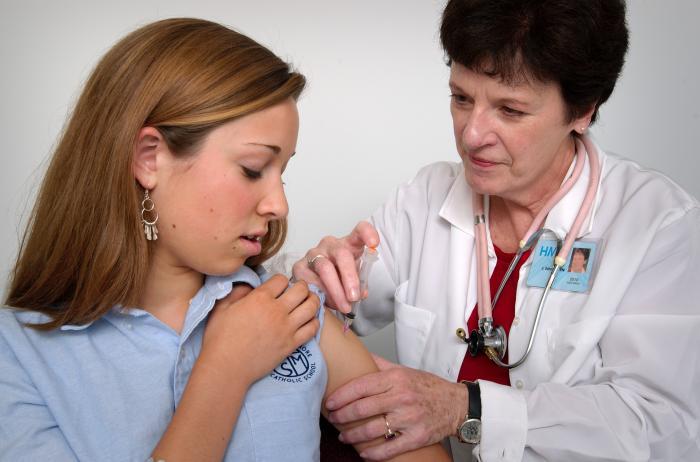Editor's note: This story was revised on Sep 19, 2013, to include more information about an earlier trial of an H7N7 influenza vaccine.
The National Institutes of Health (NIH) today announced the launch of a pair of clinical trials of a candidate vaccine for H7N9 avian influenza, including formulations containing adjuvants to boost the immune response.
Adjuvants are being tested because previous vaccines for H7 flu subtypes have not yielded strong immune responses, the NIH said. Although adjuvants are used in vaccines for some other diseases, no flu vaccines containing adjuvants have been licensed in the United States.
"H7N9 avian influenza virus—like all novel influenza virus strains to which people have not been exposed—has the potential to cause widespread sickness and mortality," said Anthony S. Fauci, MD, director of the NIH's National Institute of Allergy and Infectious Diseases (NIAID), in a press release. "We are now testing a vaccine candidate with and without adjuvant in an effort to prepare for and, hopefully, protect against this possibility."
Human infections with H7N9 flu emerged in China in February, and 135 cases with 44 deaths have been confirmed since then. Although cases have been confined to China and the virus has not shown sustained person-to-person transmission, there is concern that it could evolve into a much greater threat, the NIH noted.
In the two clinical trials, billed as phase 2, adults between the ages of 19 and 64 will receive an investigational vaccine developed by Sanofi Pasteur, the agency said.
One trial will be led by Mark J. Mulligan, MD, of Emory University and will include as many as 700 volunteers, who will be divided into seven groups. Each group will receive two doses of vaccine, about 21 days apart. Four different dose amounts will be used, ranging from 3.75 to 45 micrograms. For five of the groups, the vaccine will include the MF59 adjuvant developed by Novartis Vaccines and Diagnostics.
The second trial, led by Lisa A. Jackson, MD, MPH, of Group Health Research Institute in Seattle, will include up to 1,000 participants, the NIH said. They will be divided into 10 groups, with each group getting two doses in the same amounts as in the other trial.
The trial will involve the use of both MF59 and the AS03 adjuvant developed by GlaxoSmithKline Biologics, the agency said. Two groups will receive one of the two adjuvants in their first dose and the other one in their second dose. AS03 was used in Pandemrix, a 2009 H1N1 flu vaccine that was administrated in several European countries during the 2009-10 H1N1 pandemic.
The trials are expected to be completed in December 2014, the NIH reported.
Eight NIAID-funded Vaccine and Treatment Evaluation Units will participate in the trials: Baylor College of Medicine in Houston; Children's Hospital Medical Center, Cincinnati; Emory University, Atlanta; Group Health Cooperative, Seattle; Saint Louis University, St. Louis; University of Iowa, Iowa City; University of Maryland School of Medicine, Baltimore; and Vanderbilt University, Nashville. The University of Texas Medical Branch at Galveston will conduct the trial as a subcontractor to Baylor College of Medicine.
The NIH said previous vaccine research involving other H7 flu viruses has suggested that two doses of vaccine without adjuvant may not produce enough of an immune response to be protective.
"In pandemic situations, adjuvants also can be used as part of a dose-sparing strategy, which would allow production of more doses of vaccine from the available supply of the viral antigen, thereby allowing a greater number of people to be vaccinated more quickly," the statement said.
An NIH official told CIDRAP News that the phase 1 trial that is considered the predecessor of the two new trials was actually a test of an H7N7 vaccine. The trial, involving an inactivated subunit vaccine with no adjuvant, involved 125 young adults who received two doses or a placebo, according to a December 2012 report in PLoS One. The results showed that the vaccine was safe but poorly immunogenic.
See also:
Sep 18 NIH press release
Jun 11 CIDRAP News story on H7N9 vaccine options
Abstract of 2012 PLoS One report on H7N7 vaccine trial





















